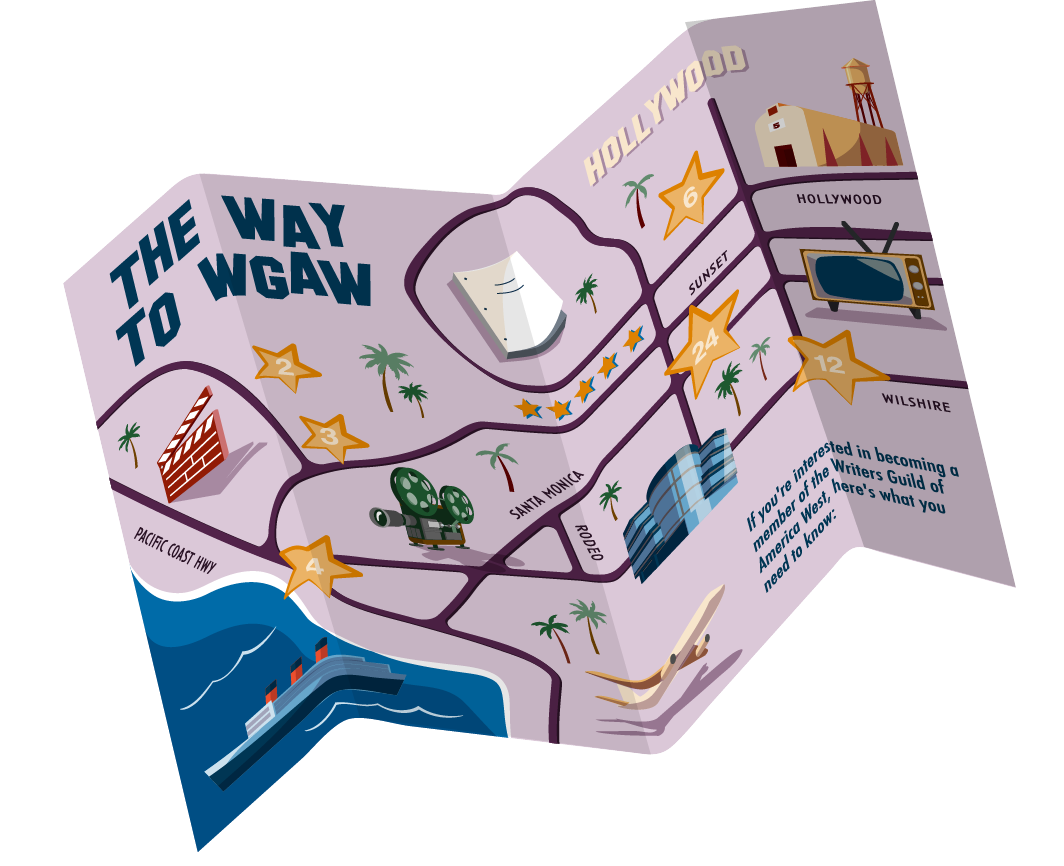Members
Screen Writers' Guild Presidents
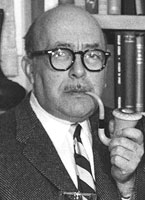
Frederick Hugh Herbert wrote for the theater, film, television, and radio from the 1920s until 1958.

F. Hugh Herbert
Herbert wrote the play Kiss and Tell, which ran for more than 950 performances on Broadway, and later adapted and co-produced it for film. He also wrote magazine articles as well as successful radio programs such as Meet Corliss Archer, which he created.
Born in Vienna in 1897, Herbert was educated in England’s University of London, where he studied to become a mining engineer. The British Army rejected him when he tried to enlist for War World I duty, and he found work in the advertising department of a London department store. He emigrated to the U.S. in 1920, and wrote his first film scripts in 1921 in addition to several novels and poetry books. Herbert died in Beverly Hills on May 17, 1958.
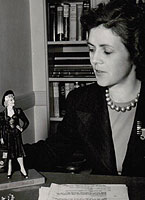
First woman president of the Screen Writers Guild, Mary Caldwell McCall Jr., wrote or co-wrote the screenplays for A Midsummer Night’s Dream (1935)...

Mary C. McCall Jr.
First woman president of the Screen Writers Guild, Mary Caldwell McCall Jr., wrote or co-wrote the screenplays for A Midsummer Night’s Dream (1935), Craig’s Wife (1936), The Sullivans (1944), Mr. Belvedere Goes to College (1949), and eight of the 10 Maisie films. She also wrote episodes for the television series Gilligan’s Island, I Dream of Jeannie, Sea Hunt, and The Millionaire. McCall received the WGAw Valentine Davies Award in 1962.
During World War II, she was the West Coast head of the war activities committee of the motion picture industry. In 1954, she testified before the State Senate fact-finding committee on un-American activities, denying reports that she was a communist sympathizer and condemning political extremism.
McCall was born on April 4, 1904, in New York City, and got her start as a film writer in the 1930s when Warner Bros. hired her to collaborate on a script based on her novel Revolt. She died on April 3, 1986, in Woodland Hills.

Karl Tunberg wrote or co-wrote Rebecca of Sunnybrook Farm (1938), Down Argentine Way (1940), the Oscar-nominated Tall, Dark and Handsome (1941)...

Karl Tunberg
Karl Tunberg wrote or co-wrote Rebecca of Sunnybrook Farm (1938), Down Argentine Way (1940), the Oscar-nominated Tall, Dark and Handsome (1941), Orchestra Wives (1942), the WGA- and Oscar-nominated Ben-Hur (1959), and episodes of the television series Bonanza, Mannix, and Cannon. He produced Kitty (1945), Up in Central Park (1948), You Gotta Stay Happy (1948), and The 7th Dawn (1964), among several other films.
He was born March 11, 1907. Tunberg set out to be a teacher, but turned to script writing after he won a short story competition. He died in 1992 in London, where he lived during his last 20 years.
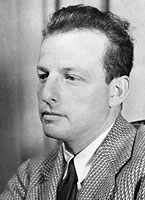
Valentine Davies is best known for writing the Academy Award-winning story for Miracle on 34th Street (1947).

Valentine Davies
Valentine Davies is best known for writing the Academy Award-winning story for Miracle on 34th Street (1947) in collaboration with writer-director-producer George Seaton. Additional writing or co-writing credits include Chicken Every Sunday (1949), The Glenn Miller Story (1953), The Bridges at Toko-Ri (1955), and the Benny Goodman Story (1955), which he also directed. Davies wrote and produced House Without a Name (1956), a documentary about the work of the Motion Picture Relief Fund.
The Academy of Motion Picture Arts and Sciences houses the Valentine Davies Collection, the screenwriter’s scripts, drafts, and plays from 1925 to 1960. Another honor that immortalizes Davies’ contributions to his craft is the WGAw’s Valentine Davies Award, given to Guild members whose contributions to the entertainment industry and the wider community have brought dignity and honor to all writers. In addition to serving as WGAw president, he co-chaired the Guild’s screen negotiating committee in 1960 during negotiations with Universal-International Film Studios. He served on the AMPAS Board of Governors from 1955 to 1961.
Davies was born in New York City on August 25, 1905, and attended the University of Michigan and the Yale University drama school. He served in the U.S. Armed Forces during World War I. Davies died in Malibu on July 23, 1961.
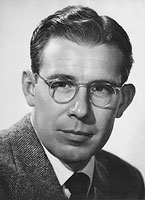
George Seaton won two best screenplay Academy Awards for Miracle on 34th Street (1947) and The Country Girl (1954)...

George Seaton
George Seaton won two best screenplay Academy Awards for Miracle on 34th Street (1947) and The Country Girl (1954), and earned nominations for The Song of Bernadette (1943) and Airport (1970). Other writing credits include the Marx Brothers classic A Day at the Races (1937), an adaptation of Moon Over Miami, and Chicken Every Sunday (1949). He directed and produced numerous films, and received a best director Oscar nomination for The Country Girl. Seaton’s Airport was Universal Pictures’ largest moneymaker until Jaws.
In addition to his WGAW service, he was three times president of the Academy of Motion Pictures Arts and Sciences, and served as vice president of the Motion Picture Relief Fund. The WGA gave him the the Screen Laurel Award in 1961 and he received the WGAw Valentine Davies Award in 1968. He received the AMPAS Jean Hersholt Humanitarian Award in 1961, and the Beverly Hills Chamber of Commerce’s Will Rogers Memorial Award in 1973.
Seaton was born in South Bend, Indiana, on April 17, 1911. He attended Exeter Academy, and rejected a Yale University scholarship to audition for Jessie Bonstelle’s drama school. She hired him for her stock company at $15 a week. He worked for radio as the voice of the Lone Ranger, and wrote several plays until he was hired by MGM. He died on July 28, 1979, in Beverly Hills.
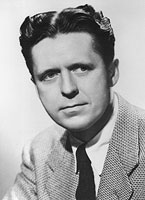
Sheridan Gibney shared Academy Awards with co-writer Pierre Collings for original story and screenplay for The Story of Louis Pasteur (1936).

Sheridan Gibney
Sheridan Gibney shared Academy Awards with co-writer Pierre Collings for original story and screenplay for The Story of Louis Pasteur (1936). He co-wrote I Am a Fugitive from a Chain Gang (1932) with Howard J. Green and Brown Holmes. Other screenplays include The Green Pastures (1936), Anthony Adverse (1936), Disputed Passage (1939), Our Hearts Were Young and Gay (1944), and The Locket (1946). For television, he wrote episodes for Bachelor Father, The Man from U.N.C.L.E., The Six Million Dollar Man, and Police Woman.
Gibney was born in New York City on June 11, 1903, and began his career as a playwright and literary critic in the 1920s. He died in Missoula, Montana, in April 1988.
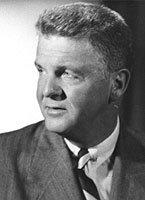
Emmet Lavery and co-writer Milton Sperling earned an Academy Award nomination for their screenplay The Court Martial of Billy Mitchell (1955).

Emmet Lavery
Emmet Lavery and co-writer Milton Sperling earned an Academy Award nomination for their screenplay The Court Martial of Billy Mitchell (1955). Lavery’s television movie Magnificent Yankee (1950) won five Emmys. One of his earliest plays, The First Legion, was produced on Broadway, then in Europe, and was translated into more than a dozen languages. His other works include the play Gentlemen from Athens, the film Bright Road (1953), and the television script Continental Congress: 1976.
In addition to being WGAw president, Lavery was elected vice president of the Academy of Motion Picture Arts and Sciences in 1946 and later, secretary of the Academy’s board of governors.
Lavery was born on November 8, 1902, in Poughkeepsie, New York. He earned a law degree from Fordham University and began his professional life as a trial lawyer, then worked as a journalist and city editor in his hometown for 10 years before becoming a playwright and screenwriter. He died in Tarzana on January 1, 1986.
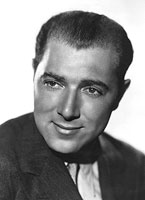
A Screen Writers Guild founder, Lester Cole wrote more than 40 films, including The Invisible Man Returns (1940), The House of Seven Gables (1940)...

Lester Cole
A Screen Writers Guild founder, Lester Cole wrote more than 40 films, including The Invisible Man Returns (1940), The House of Seven Gables (1940), Objective Burma (1945), The Romance of Rosy Ridge (1947), High Wall (1947), and Born Free (1966).
One of the “Hollywood Ten” who refused to testify before the House Committee on Un-American Activities, Cole was imprisoned and blacklisted, forced to write his last few screenplays using pseudonyms for 15 percent of the salary he commanded before the blacklist. After serving his sentence, he worked as a short-order cook, waiter, and manual laborer. In 1961 he moved to London to write plays but had little commercial success, and returned to the U.S. to live in San Francisco. He then taught university extension courses in screenwriting.
He was born in New York City on June 19, 1904, and left school at the age of 16 to eventually become a stage director and playwright. Cole moved to Hollywood in 1932 with several other writers who worked on the film If I Had a Million. In 1982, he wrote his autobiography Hollywood Red. Cole died in San Francisco on August 15, 1985.
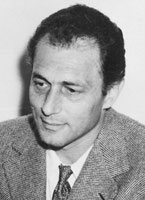
Sidney Buchman’s screenwriting career began with The Sign of the Cross (1932) for Cecil B. DeMille, and really took off with his first hit, Theodora Goes Wild (1936).

Sidney Buchman
Sidney Buchman’s screenwriting career began with The Sign of the Cross (1932) for Cecil B. DeMille, and really took off with his first hit, Theodora Goes Wild (1936). His credits include Mr. Smith Goes to Washington (1939), Here Comes Mr. Jordan (1941), for which he shared a best screenplay Oscar with Seton I. Miller, and A Song to Remember (1945). He also wrote Over 21 (1945), Jolson Sings Again (1949), The Mark (1961), Cleopatra (1963), and produced several films after 1937.
In 1951 he admitted to having been a member of the Communist Party from 1938 to 1945 before the House Committee on Un-American Activities, but refused to divulge names. He ignored other subpoenas, was fined, indicted for contempt, and blacklisted. 20th Century Fox hired him 10 years later as writer-producer of The Mark, and the WGA gave him the Laurel Award in 1965.
Buchman was born in Duluth, Minnesota, on March 27, 1902, attended the University of Minnesota, Oxford University, and Columbia University. Play writing efforts included This One Man and Storm Cellar and he worked as an assistant stage director at the Old Vic Theater in London. He died in Cannes, France, on August 23, 1975.

Charles Brackett was an attorney, critic, novelist, writer, and producer with more than 40 film credits.

Charles Brackett
His collaboration with screenwriter-director Billy Wilder resulted in such memorable films as Ninotchka (1939), A Foreign Affair (1948), and they received best screenplay Oscars for The Lost Weekend (1945) and Sunset Boulevard (1950). Brackett’s collaboration with Richard Breen and Walter Reisch led to a third Academy Award, for Titanic (1953). He also produced The King and I (1956), which won five Oscars.
Eulogized in The New York Times as “one of Hollywood’s elder statesmen and most successful figures,” Brackett served as Academy of Motion Picture Arts and Sciences president from 1949 to 1955, was a Screen Producers’ Guild executive board member, and a Motion Picture Relief Fund board member. In 1957 he received an honorary Academy Award for outstanding service to AMPAS; Brackett and Wilder were given the WGA Laurel Award that same year. In addition, the WGA honored Brackett with the Edmund H. North Award in 1967.
He was born in Saratoga Springs, New York, on November 26, 1892, earned a law degree from Harvard Law School, practiced law for six years, and wrote five novels: The Counsel of the Ungodly, Weekend, The Last Infirmity, American Colony, and Entirely Surrounded. Brackett was also a drama critic for The New Yorker and a regular contributor for the Saturday Evening Post, Collier’s, and Vanity Fair. During World War I, he enlisted in the American Expeditionary Force, became vice-consul at St. Nazaire, France, was commissioned as a second lieutenant, and earned a medal of honor from the French army for his services. He died in Bel Air on March 9, 1969.
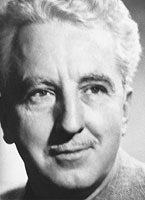
Writer, director, and producer Dudley Nichols’ writing and co-writing credits include Men Without Women (1930), the Academy Award-winning The Informer (1935)...

Dudley Nichols
Writer, director, and producer Dudley Nichols’ writing and co-writing credits include Men Without Women (1930), the Academy Award-winning The Informer (1935), Bringing Up Baby (1938), Stagecoach (1939), The Long Voyage Home (1940), For Whom the Bell Tolls (1943), And Then There Were None (1945), The Bells of St. Mary’s (1945), Mourning Becomes Electra (1947), and Pinky (1949). He worked several times with director John Ford and collaborated with writers Philip Dunne and Ben Hecht.
In 1936, the Screen Writers Guild co-founder became the first Academy Award winner to refuse the Oscar, which he won for The Informer. Citing the Guild’s formation as a response to how the Academy “functioned against the employed talent in any emergency,” Nichols said in a statement: “To accept it would be to turn my back on nearly 1,000 members of the Screen Writers Guild.” He received three more Academy Award nominations for The Long Voyage Home, Air Force (1943), and The Tin Star (1957).
One of the first writers to direct and produce, Nichols also formed an independent production company. He received the WGA Screen Laurel Award in 1954. Nichols was born in Ohio in 1895, and died in Hollywood on January 4, 1960.
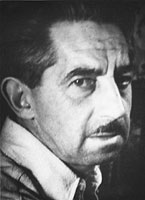
Novelist, playwright, and screenwriter Ernest Pascal was active from the silent era through the 1950s.

Ernest Pascal
His screen credits include Chastity (1923), The Savage (1926), Wedding Rings (1930), Lloyds of London (1936), Wee Willie Winkie (1937), Kidnapped (1938), and The Hound of Baskervilles (1938). He contributed an episode for the television series General Electric Theater.
Pascal advocated for the screenwriter’s rightful place in American literature as early as the 1930s. As Screen Writers Guild president in 1935, he challenged film critics for ignoring or underrating screenwriters, noting that Guild members wrote 90 percent of all motion pictures. “Why is screen authorship the only form of creative writing condemned to the general dog house?” he asked.
His plays include The Amorous Antic, American Primitive, and the stage adaptation of his novel The Marriage Bed, of which he said, “Had it been my original intention to write a play I should certainly never have gone to the trouble of first writing a novel.” Pascal was born in 1896 and died in 1966.
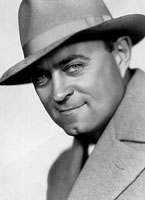
A founding member of the Screen Writers Guild and its first treasurer, Ralph Block was active from the 1920s to 1950, writing westerns, dramas, and musicals.

Ralph Block
A founding member of the Screen Writers Guild and its first treasurer, Ralph Block was active from the 1920s to 1950, writing westerns, dramas, and musicals such as The Arizona Kid (1930), The Right to Live (1935), In Caliente (1935), Patrick the Great (1945), and Nancy Goes to Rio (1950), starring Jane Powell. He produced several films, including Stand and Deliver (1928), starring Lupe Velez; Power (1928), High Voltage (1929), and The Racketeer (1929), all starring Carole Lombard. Block collaborated with W.C. Fields, and is credited with having discovered Lombard.
In 1939 the Academy of Motion Picture Arts and Sciences awarded him an honorary Academy Award for co-founding the Motion Picture Relief Fund, designed to provide support and medical care for motion picture industry employees unable to care for themselves.
In 1946 he received the Medal of Freedom as head of the Office of War Information in India from 1943 to 1946. Additionally, he was an active member of the Hollywood Writers Mobilization and the Motion Picture Democratic Committee.
Also a reporter and theater critic, his articles appeared in publications such as Vanity Fair, the New Republic, The Dial, the Louisville Courier-Journal, and the Kansas City Star. Block was born in Iowa on June 21, 1889, and died in Maryland on January 2, 1974.
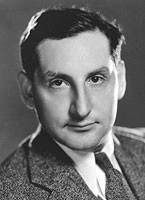
First president and co-founder of the Screen Writers Guild, John Howard Lawson was one of the first screenwriters to write for talkies.

John Howard Lawson
He was active from 1928 until 1947, when he became one of the blacklisted “Hollywood Ten,” indicted for contempt of Congress, found guilty, and jailed for one year.
“I’m much more completely blacklisted than the others. I’m much more notorious and I’m very proud of that,” The New York Times quoted Lawson as saying. “It had much to do with the fact that I helped to organize the Guild and played a leading role in progressive activities until 1947.”
Lawson’s best known scripts include Algiers (1938), the Academy Award-nominated Blockade (1938), Action in the North Atlantic (1943), Sahara (1943), Counter-Attack (1945), and Smash-Up: The Story of a Woman (1947). He also wrote plays, articles, and letters to newspapers, often discussing film aesthetics; he wrote the film theory book Film: The Creative Process. In New York City, he co-founded and was director of the New Playwrights Theater, where he had nine plays produced, including Success Story.
He was born in New York City on September 25, 1894, graduated from Williams College, and briefly worked as a cable editor for Reuters Press. Then, he went overseas to serve in World War I as an ambulance driver in Italy and France. He died in San Francisco on August 11, 1977.



